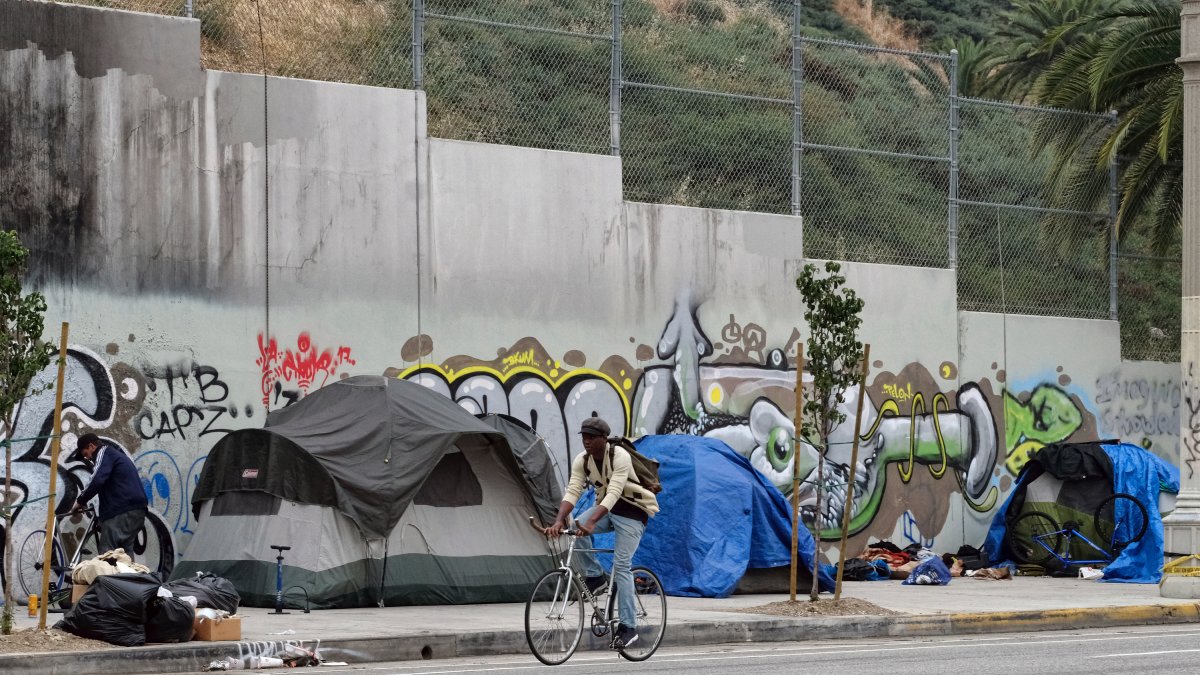San Diego Mayor Todd Gloria on Monday announced a number of changes to policies governing how the city intends to handle homeless encampments and unsheltered people’s belongings.
The changes are aimed at providing transparency and consistency to reduce negative impacts of city sidewalk-cleanup activities on people experiencing homelessness.
“While the city has an obligation to make sure we don’t have another communicable disease outbreak like hepatitis A among our homeless population, we can do so with compassion and while respecting their dignity,” Gloria said.
“As we work every day on solutions to connect folks to permanent housing, shelter and supportive services, these changes apply a measure of respect and compassion that will reduce the trauma for those San Diegans experiencing homelessness.”
San Diego’s hepatitis A outbreak in 2017 resulted in 20 deaths among the city’s unsheltered population. The city has an obligation to ensure that its sidewalks are clean to protect against future public health threats. Other cities with large homeless populations have seen outbreaks of typhus and other infectious diseases due to unsanitary conditions in encampments.
Gloria said he has committed to a compassionate approach to keep the public right-of-way clean and provide less uncertainty for unsheltered individuals.
The changes, most of which are already in effect, include:
- Suspension of cleanups and enforcement during inclement weather such as rain, hail or extreme cold;
- Suspension of cleanups at night;
- Easier means to retrieve personal items removed during cleanups, with city crews storing items that may have personal value, such as jewelry, photos, identification or legal documents, and offering detailed instructions for how to retrieve those items;
- Clearer and more consistent noticing of cleanup schedules, especially in high-need areas;
- Less visible police presence during cleanups, with police avoiding use of emergency lights and instead relying on city truck safety lights; and
- Coordination of cleanup activities with outreach activities to ensure that unsheltered residents are offered shelter and services ahead of the cleanups.
The changes were developed by the city’s Homelessness Strategies Department, incorporating feedback from people with lived experience, relying on homelessness experts and national and regional policy and including ideas and input from the city’s Environmental Services and Neighborhood Policing departments.
The changes that involve installing new signage will be implemented over the next several weeks.

